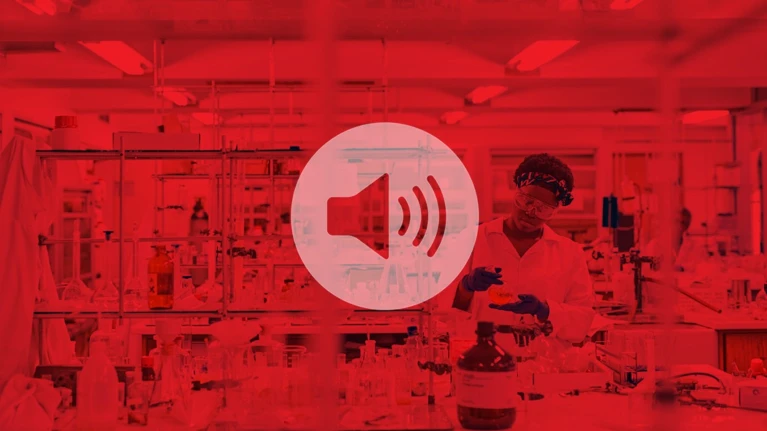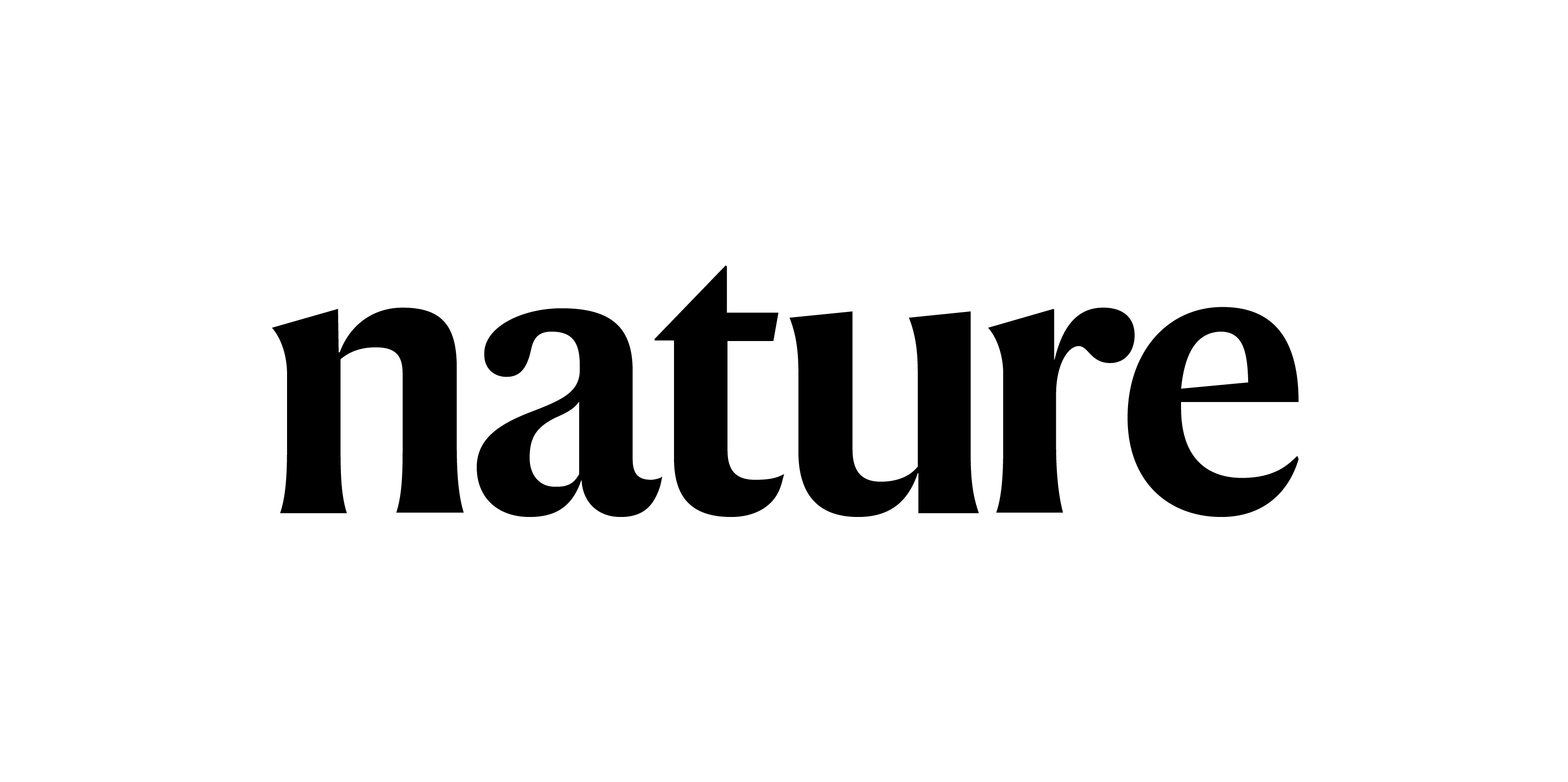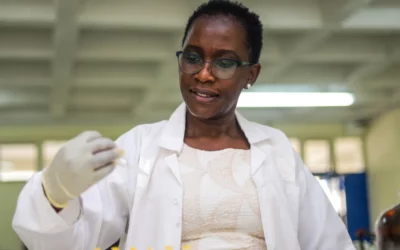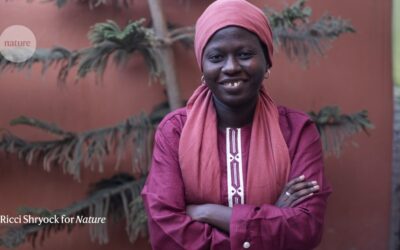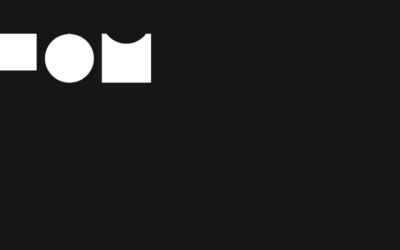By Dom Byrne on nature.com
Science in Africa: Diaspora perspectives
Molecular biologist Khady Sall returned to Senegal in 2018 after setting up Science Education Exchange for Sustainable Development (SeeSD), a non-profit organization she founded while a PhD student in the United States. SeeSD promotes science, technology, engineering, art and mathematics education to encourage scientific literacy and critical thinking in young people.
Sall tells Akin Jimoh how her career experiences abroad made the return to Africa a daunting prospect. But working and living abroad has convinced her that science careers in Africa, and the cities where science takes place, should not follow US and European models.
“If we’re not authentic in being scientists, and not doing research that follows local problems and our local culture, then at some point, we will just become another US or another France, and that will be very boring. Hopefully that will not happen here. And then we will be vibrant and do a different kind of science. People will say: ‘Wow, why didn’t this happen sooner?’”
Togolese researcher Rafiou Agoro runs the African Diaspora Scientists Federation, a mentoring platform that connects African scientists based abroad with colleagues back home, from his base at Indiana University School of Medicine in Indianapolis. So far, Agoro and his team of 150 mentors have supported more than 100 scientists.
“I was looking for any any opportunity to have an impact back home. A lot of people who are abroad are eager to do something back here. COVID has taught us distances matter less when it comes to education,” he says.
This is the sixth episode in an eight-part podcast series hosted by Akin Jimon, chief editor of Nature Africa.
TRANSCRIPT
Khady Sall and Rafiou Agoro tell Akin Jimoh how diaspora scientists can support colleagues back in Africa.
Khady Sall and Rafiou Agoro tell Akin Jimoh how diaspora scientists can support colleagues back in Africa.
Akin Jimoh: 00:10
Welcome to Science in Africa, a Nature Careers podcast series. I am Akin Jimoh, chief editor of Nature Africa. I work and live in Lagos and I’m passionate about promoting science and public health journalism in my native Nigeria and across Africa.
In this series, we explore the practice of science in this wonderful continent, the progress, the issues, the needs, and in the words of African scientists who are based here.
In this sixth episode, we spotlight the African diaspora. I hear from two researchers about how they contribute to scientific research back home. First, we meet Khady Sall, a molecular biologist who completed her education to doctorate level in France and the United States, before returning to her native Senegal. I asked her: could she have stayed abroad?
Khady Sall 01:13
Yeah, definitely. So I could have stayed in the countries, in either country. Because, you know, what I study is something, I guess with COVID, people more likely understand the importance of it. So while I studied, I did not really have a problem to integrate, to stay there and have a job. So I could have worked in the lab or even continued a career at the universities. So….
Akin Jimoh: 01:43
….why did you come back to Senegal. Is that why you come back to Senegal? Things are easy out there!
Khady Shall: 01:48
Yeah, like when I made the decision to come back, I was in the process of making the decision to come back, I felt like to some extent, also, I was self sabotaging because I mean, I have spent so much time abroad, like learning and growing there and becoming an adult, becoming a professional.
And then all of a sudden, I’m like, okay, I want to go back home where I did not necessarily have a lot of prospects.
And for me, my coming back as well, for a lot of people when they come back to Africa, well, they already have, like a job lined up, or something that kind of encouraged them to come or like, hefty savings or something.
But in my case, it wasn’t like that. So it was some sort of leap of faith. And I wanted to come back because I thought, like, I could have more impact back home. I could make more difference back home.
And then so at some point, I mean, I just, I just took a jump. And I was like, also since I was still young. like how I kind of convinced myself to make this jump and then make this huge bet on my career, is like, since I’m still young I can go ahead and try to come back and see how it works. And if it doesn’t, if you do it young enough, at some point, if it doesn’t work out, you still have the option to go back if necessary. So at some point to try to convince myself, that’s what I said. But yeah….
Akin Jimoh: 03:23
What time frame is all this? I mean, when did you come back? And how’s it been so far?
Khady Sall 03:32
So like, I came back a year after my PhD back in the US. So it was in 2018. So I came back in May 2018. So my coming back as well, it was something very quick.
One day I woke up and I bought a ticket. I was like “If I don’t do it now probably I will never have the courage to do it.”
So I just bought a ticket and then in one week I was back already. So, I came back since 2018 and you know and since then, now it’s 2022, the years they go pretty fast.
And then since then, you know, like being in my country it’s not necessarily easy, you know, when, you know, when you decide to come back it’s it’s a struggle because you’re used to like certain type of infrastructure, you’re used to set, to working with you know, certain type of like people and etc. And then if we come here is like you have to start everything from scratch and that’s really a big challenge for me and then for a lot of people who’ve decided to come back as well.
Akin Jimoh: 04:47
Yeah, you know, you set up a non-governmental organization in you know, not for profit organization called the Science Education Exchange for Sustainable Development. SeeSD. What does it do?
Khady Sall: 05:03
So SeeSD is an organization I started in 2015. And it’s actually, you know, one of the, one of the key projects that kind of convinced me that I could give back as well because I started it while I was still a PhD student back in the US.
So SeeSD really does STEM education.
So the goal is to promote STEM education starting from a young age to encourage scientific literacy and critical thinking.
Because, you know, like, I was always interested in, you know, starting something like a company or something in biotech. And at some point, you know, I realized that to get all the way there like, I mean, you have to train.
Like, there needs to be like human resources. I feel like that’s the key issue. That’s, you know, that’s the key problem that we need to solve first in Africa. Like training a human resource in STEM education. And then the goal is like really organization is starting from a young age, we can work with kids, we do hands-on science, and we kind of show them that science can be fun, it can be easy.
And it also is a way you could build a career, where you could have a great impact in your community.
Because I mentioned, like something that, you know, that helped me come back was the fact that I have created SeeSD and with SeeSD like when I started in 2015, to 2018, I went to a lot of conferences abroad.
And then I was speaking about this fact that, you know, like, development could be done in a way that’s different from what you see in Europe, or what you see in the US.
Because in, in a lot of places in Africa, we have a different culture we have, we have languages, we have to conserve, we have also the environment we have to conserve.
Like if you want to do development, it has to be different, because we are talking about climate change, we cannot just, you know, follow the path of US or Europe, etc, because it will have a damage to the world.
So we have to do it differently. And the way we could do it differently is by developing, you know, using our, you know, our local values, which, most of them are preserving the environment. And you know, and are very important when it comes to like, you know, caring for the planet.
Akin Jimoh: 07:44
I believe that a Hollywood film was a big inspiration to you.
Khady Sall: 07:48
Yeah, so Black Panther is a blockbuster now. So an Avenger film about a Black superhero. I mean, the movie is presumably located in a country in Africa that’s named Wakanda.
Clip from Black Panther: 08:12
My son, it is your time. Show me my respect in depth down.
You get to decide what kind of king you are going to be.
Khady Sall: 08.16
And then the movie really, I think it could mean a different thing to different people, because, I mean, it’s an Avenger film. So it’s like you have this whole superhero kind of, you know, routine that happens and you know, Avenger film.
But something that’s more even important in the movie. It’s like the science and the culture behind it. For me, that’s really, when I look at Black Panther that’s what I’m seeing. And a lot of things I was talking about, and then people did not seem to get the movie was showing it pretty well.
Clip from Black Panther: 08:54
Tell me something. What do you know about what Wakanda?
It is a third world country, textiles, shepherds, cool outfits,
All a front Explorers have searched for it. Called it Eldorado.
Khady Sall: 09:18
Like in terms of like development could be different. Like in terms of Black Panther, you see, like Wakanda, which is a different kind of city from what you will see in New York City, or what you will see in you know, in Paris or something.
But also something that really touched me through this movie. It’s the representation of like the African culture, and also how this could be mixed up with science and lead to like innovation that could have potentially have an impact in the world.
And so for me, that’s what the movie is about, like seeing it through the science perspective.
And then how also all these things could happen, like with the foundation, with the foundation of it being like that people, like they conserve the culture, they conserve the values, they conserve the local languages.
So for me, it’s like, you know, it’s, the movie was just like something wonderful to see.
And then it was like this, it can help you, It helps you see this vision that development could happen differently in Africa. And it could be a development that, you know, that’s rooted within the culture, and that’s kind of preserved our local languages, preserve our, our Indigenous knowledge and a lot of different things that could be that we should definitely not lose, because this will be, you know, our, our added value to what we will bring to the table when it comes to like, you know, innovation or something.
Because I feel like if we’re not authentic in being scientists, and you know, doing research following our local problematics, and you know, our local culture, then at some point, we will, like, we will just become another US or another France or something, and that will be very boring. And hopefully, that will not happen here. And then we will, like, be vibrant, different kinds of, do like a different kind of science that will be like people will be like, “Wow, why didn’t this happen sooner?”
So I just thought like, it was a beautiful example of what it could be and how development could be different. So and then, after I saw that movie, I was like, yeah, well, I’m coming back for sure.
Rafiou Agoro: 11:47
My name is Rafiou Agoro. So I am a Togolese citizen. And I am working as a junior faculty at the department of medical and molecular genetics, based in Indianapolis, Indiana State, at Indiana University School of Medicine.
Akin Jimoh: 12:10
So tell us about your time, abroad, your time in the US and France.
Rafiou Agoro: 12:16
So, I went to France to pursue a graduate study in immunology, biotechnology and molecular genetics. I spent in total five years in France, and the experience was unique. I had the privilege to do good science, to be mentored by renowned scientists, as well as making like, lifelong friends, for example, in France.
It was a pretty good experience in France. After my PhD in France in 2016, I moved to the United States to start my postdoc position at New York University School of Medicine.
Akin Jimoh: 13:11
You are from Togo. Well, let me ask, why did you not return to Togo?
Rafiou Agoro: 13:17
Yeah, so this is, I think this is a question people keep asking me. Actually, I returned to Togo. So two weeks after my graduation, for example, from PhD, I went back straightforward to Togo. I even had the opportunity to meet with the deans of two universities in Togo, where I share with them, like my experience, my background, and what I really want to do.
Unfortunately, at that time, they didn’t have openings at university, for example, to work. So it was in 2016.
And in the meantime, when I was in Togo, I was interviewed by a professor at New York University. And within a one week period, they offered me a postdoctoral position, for example.
So the question becomes whether I stay there by waiting for a job to be available where I can join the job market, or do I take for example, the position I have, for example, at New York University.
So for me, it was important at that time, just to make sure that I keep my scientific training ongoing.
So I decided to just move to New York just to continue my training. Because it is really important to not lose the skill I learned during my PhD. And it is also important just to keep learning, for example, new scientific skills. So it was critical for me just to keep going. But even if I am not in Togo now, I’m still thinking about ways just to contribute in a different manner to Togolese science.
Akin Jimoh: 15:07
Let me ask you, you, you sought for opportunity. There was no space for you. Was it that the system was not ready for the kind of research you want to do? Or the system is not, was not ready, you know, to more or less look at the area, your area of specialization. Was that not an issue?
Rafiou Agoro: 15:30
I have a very broad scientific training background. So for example, I can do things like biotechnology, I can work in immunology, I have some training in genetics.
But the real issue is that the system does not have some opening for maybe young, ambitious, scientists like me.
Yeah, the system was not ready for me just to join the job market actually there. And I don’t know why. But this is what happened. Yeah.
Akin Jimoh: 16:05
So you set up the network, the Africa, African Diaspora Scientists Federation, ADSF. What does it do?
Rafiou Agoro 16:15
Our goal at ADSF is just to make sure that African scientists in the diaspora are known. And we want just to mobilize these African scientists from the diaspora to see ways they can contribute, for example, to African science.
For example, what is important for us is to see one African scientist living for example, in Pittsburgh, is there any way he can contribute to the mentoring of African scientists, for example? Or is there any way for example, one scientist from Ghana at UCLA can mentor one master’s student, for example, from Kenya, for example.
So those are the kinds of work we are doing at ADSF, basically, mentorship. We are also involved, for example, to create collaboration between like African scientists in the diaspora, and scientists who are living and working in Africa.
Akin Jimoh: 17:38
Here we have two African scientists who studied abroad and wanted to take what they had learnt back to their homeland.
But using two different approaches. Khady Sall, inspired by a Hollywood blockbuster. returned to Senegal, with ambitious plans to change the culture of how development is done.
On the other hand, Rafiou Agoro feeds his expertise back to Africa, remotely fair mentoring. I wanted to know how that worked.
Rafiou Agoro: 18:14
What we are doing is to match African diaspora scientists with students of science in Africa.
So these cover a six-month period at a rate of one hour of meeting per week, where the mentor and the mentee meet via Zoom, Whatsapp, or whatever platform they will like just to use, and where the mentor share career advice with the mentees, and also the mentee will ask for advice about writing an article or applying for fellowship or or looking for job opportunities.
So the mentors are living mainly in the diaspora. So they are in France, New Zealand, Australia, US, Canada, basically all over the world.
We have recently had some mentors also from China, who are in the network. So the mentees are in Africa. Okay, so they are in Africa, they can be in Kenya, in Tanzania, in Togo, of course in Senegal, and all over the African continent.
So our goal is just to make the match between mentor and mentee and set a meeting schedule for them where they can just exchange the idea and change the hope in terms of science.
And it is also a good way just to talk to someone who has a little bit more experience, just to learn about their challenges and, and the opportunity they can have.
And I think we create this network of mentor–mentee because for us to be where we are today has been a little bit challenging just to be where we are.
It was a little bit difficult just to find someone to talk with when we were moving abroad. So this is facilitated now through ADSF. So we know for example, people from Kenya after they, after they got for, for instance, the opportunity to go to UK to study, we can liberate our network to find someone who is living and working in the university, for example, of Manchester, and then this person can give him like tips about where to start from.
And sometimes also what we are doing at ADSF is like, we can help people in Africa who are moving abroad to pay some fees, because they don’t have maybe a credit card in Africa, and then we find a way just to work those simple, simple issues out.
Akin Jimoh: 21:28
Yeah, how many people have you mentored so far?
Rafiou Agoro: 21:30
Yeah. At the personal level, I am turning around 25. At ADSF we are around more than 100? For sure.
Akin Jimoh 21.33
And how many mentors do you have?
Rafiou Agoro: 21.36
We have around 150 mentors. Active mentors active mentors in DNS on this growing? Yeah, it is growing. In LinkedIn, the people we are who are really in our network, it is around 2,000, for example.
Akin Jimoh: 22:04
No, let’s look at outcome scientists from Africa. I mean, those who choose not to return, how can they support and develop their colleagues back home?
Khady Sall: 22:15
Yeah, so that’s, that’s a great question. Because I mean, it’s not because you’re not back that you cannot have an impact as well.
Because as for me, I started what I was doing in 2015. So I came back in 2018. So I had three years where I was kind of doing an activity back in Senegal, and I was still abroad.
So, and then something they could definitely do is like you could find ways to collaborate with colleagues back here, because I mean, something that’s very much needed, colleagues who are in these African countries, it’s like they need a collaborative network outside of the country.
So I think it could be a way to help our colleagues because through this collaboration, they may get funding, you can follow the person abroad, or you can have the impact back home.
And also something I could advise as well is like, you could also start a project, who knows, like, a lot of scientists, I know who are abroad, also some of them, they, they, they start, you know, they do some kind of projects, where they, they, they they try to teach certain skills, they do workshops, etc.
And then also something I do, for example, I am working up, I’m working on setting up this, this bachelor programme, and some of my professors are Senegalese from abroad.
So I thought for me, it was very important to include them. Because, you know, because I could see myself through.
When I was abroad, I was looking for any, you know, any opportunity to have an impact back home. So I feel like a lot of people who are abroad are eager to do something back here. And then COVID has taught us something. It’s like distance matters less when it comes to education, for example, you could take your laptop, you could be having classes with students here.
And then through my programmes when I do some of the, you know, the courses that are a little bit advanced where I can find a local human resource here, I work with Africans abroad or Senegalese abroad who can actually take on those classes and teach to students directly here and have that impact, even if they’re like far away. So yeah, which I think is important.
Akin Jimoh: 24:39
Now, what about junior scientists from Africa who want to develop their careers in another country? You know, what advice?
Khady Sall: 24:49
So I will definitely tell them to do it because I mean, my time abroad. If did not have that experience, I don’t think I’d be here today because it taught me so much in terms of not only the, you know, the science part, but just the life part. Because when you’re abroad, you are faced with different, you know, challenges when it comes to things like, the culture in which you’re in, like the people you meet, etc.
So it teaches you a lot of stuff in terms of life, just life. And I think having those life skills are also very important as, as important as having all the scientific and technical backgrounds.
So definitely try and try to find an opportunity to go abroad, because you will not regret it, that will be like a really good decision for your career.
And I think that kind of education was even more important that what I learned at the university is like the people you interact with, like the diversity, like you interact with people, so many different backgrounds, so many different, you know, whether backgrounds could be racial backgrounds, it could be geographical, it could be like a different things.
And that helps you become, you know, more compassionate, and also it helps you kind of improve your leadership skills.
Akin Jimoh 26:18
That’s great. Do you feel a duty to help fellow Africans? Was that the reason why you set it up?
Rafiou Agoro: 26:25
Yeah. Basically, at the end of the day, I was trained from when I was young, until high school in Togo, so the government from Togo invested in my future, for example.
So after these 18 years I spent in Togo, it was important, maybe now just to think about what I can do, also, just to give back from where I come from.
So this is what motivates me just to keep doing this. It is important just to give back from from to give back to Africa who contribute, or who/which initiate our training to become who we are today.
Akin Jimoh: 27:21
You know, for the benefit of other African scientists who are in the diaspora? Should the African diaspora be doing more to help the home continent?
Rafiou Agoro: 27:32
Absolutely, yes. I think, as scientists, we can do more. For me the way I see science is like helping people, or teaching people to fish actually, okay, instead of giving them the fish.
Akin Jimoh: 27:48
Oh, that’s what the Bible says.
Rafiou Agoro: 27:52
So, I mean, like teaching science to someone, you will, you will help him just to think differently, and he can apply this in the lab, but also the way he interacts with society will change because he has a broad, broad like view of things.
And also, it is also the opportunity to be persistent. For example, I think science teaches us to be really persistent. And if you are persistent, theoretically, you will be successful.
So if you are, you can be successful in science. And in the meantime, in the meantime, you are going to be successful, for example, in this society.
So I think for African diaspora scientists, to come back to your question, yes, we can send like remittance, for example to our parents.
But in addition to that, it will be great just to make sure that we also share our scientific knowledge with a student, for example, in science in Africa, because at the end of the day, we have some knowledge here, people don’t have there, but it is reciprocal, right?
Because people in Africa also have a lot to teach us. Okay. This is why I think as African diaspora scientists, we have a unique perspective, okay, which is totally different from other people.
For example, people who are in Africa or people who are here in the diaspora. So I think like we are right in the middle, and we can see like both, we can see the word or the science in a different way, for example,
Akin Jimoh: 29:38
You know, looking at the future, looking at the present thing you’ve done, looking at what you know about other African scientists in diaspora, and those who are on the continent. Is there a bright future for science in Africa?
Rafiou Agoro: 29:56
Yes, I think we have to keep in mind to see the positive things which are happening in Africa. Personally, when I was back in Togo, I see a lot of progress. And I am really happy about that.
There is a bright future in Africa for sure. The only thing is how we can mobilize like people who know more? Or who have some secret, how can we mobilize them just to contribute, to accelerate this future.
We are waiting for years, for example. So I believe, like, African scientists in the diaspora can highly contribute to African future and African science because we have a lot of expertise we can share.
And it will not take us a lot of time, it can take us one hour, but the expertise we can give in one hour can be important just to change some, some aspects of Africa.
Akin Jimoh: 31:00
Anything else you want to tell our audience?
Rafiou Agoro: 31:03
Yes, I want to use this opportunity just to call for African scientists in the diaspora to keep thinking about ways they can contribute to African science, because it’s really important in my point of view that they have like unique expertise, but also unique perspective, for Africa.
So I think that if we can mobilize them a little bit more, and it will be critical just to help the continent moving forward.
And one of my goals, just make sure, just to find ways just to create a repertoire where people can just jump in, just to see who is who is who is who and who is where, and see what they can, what they can do, just to help us.
Because I believe there are a lot of African scientists working for decades in some places in the world, but they are not really known in Africa. But this is what ADSF is, is willing just to do, just to help with that. Yeah.
Akin Jimoh: 32:38
I agree. Africa has a bright future. Rafiou says the diaspora can help much more, if we can mobilize them somehow. And its growing network is doing that. At the same time, we want to use that knowledge and experience and adapt to suit the African situation and usefully solve African needs.
So that’s all for this episode of Science in Africa, a Nature Careers podcast. I am Akin Jimoh, chief editor of Nature Africa. Thanks again to Khady Sall and Rafiou Agoro. And thank you for listening.
Read this article on nature.com

